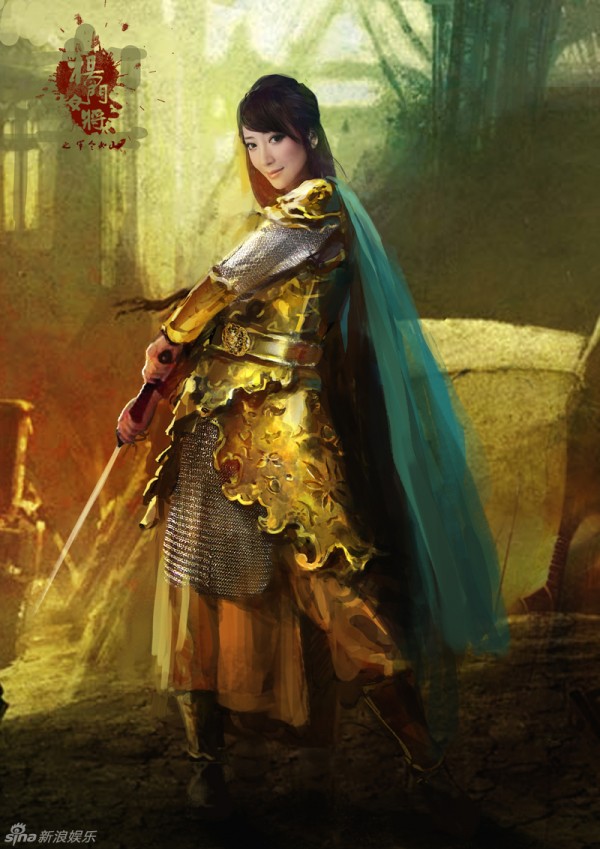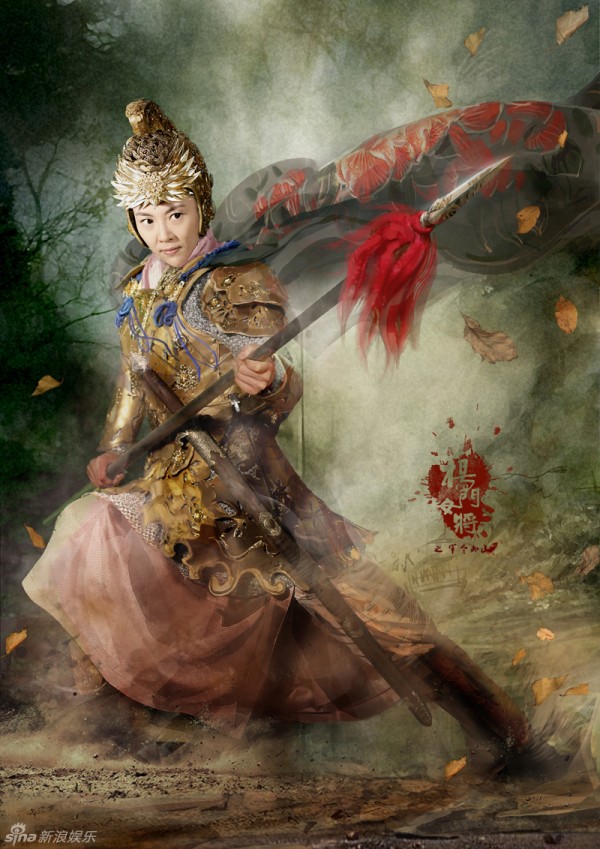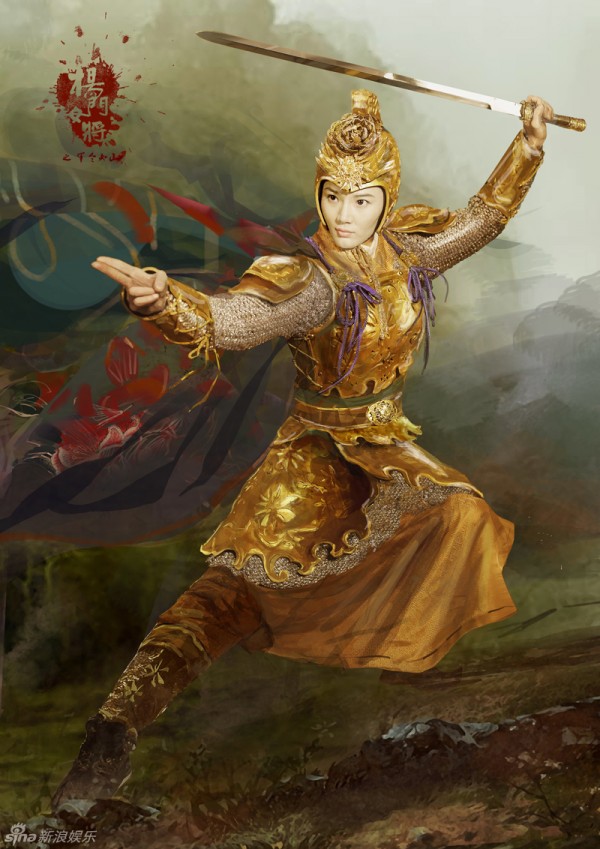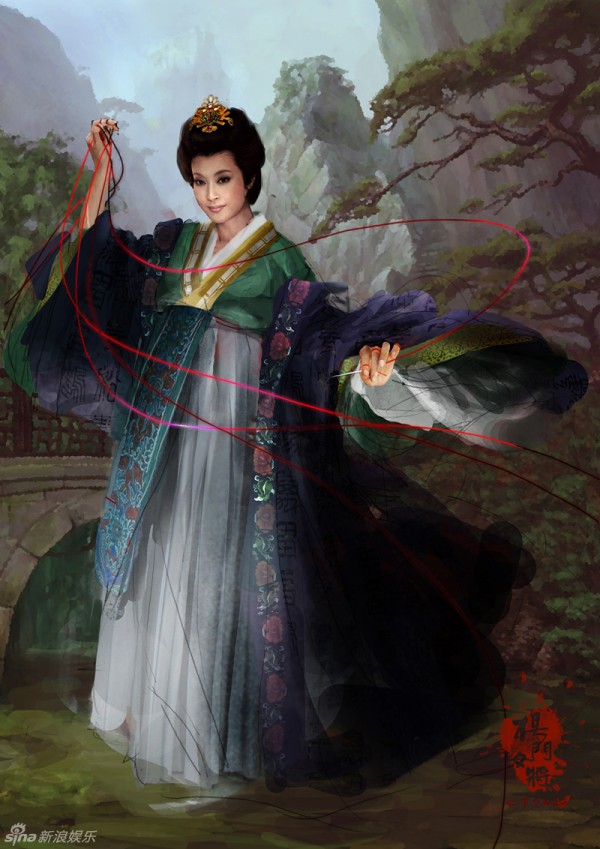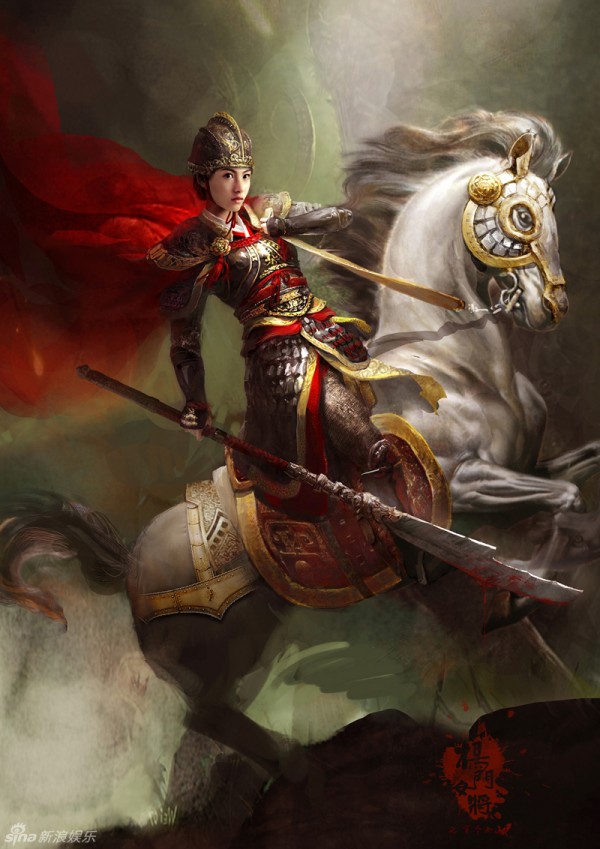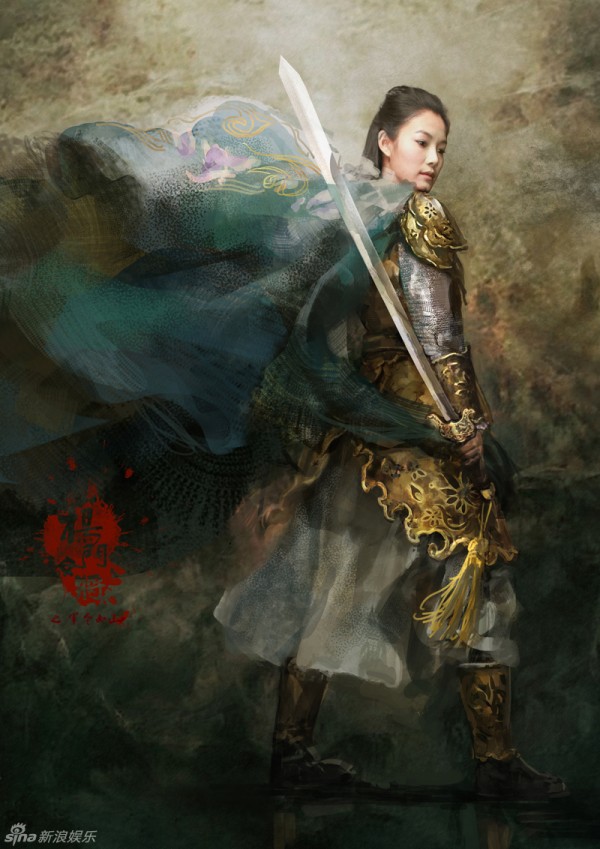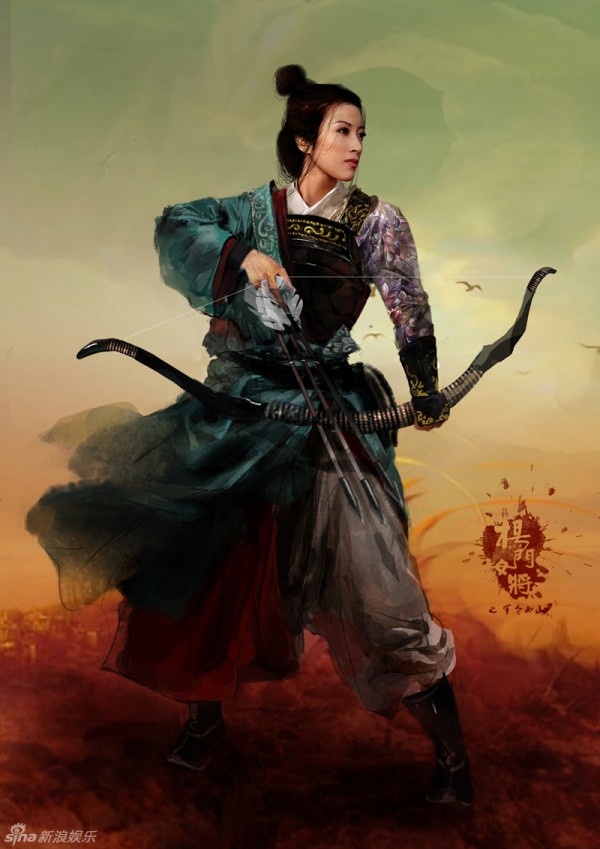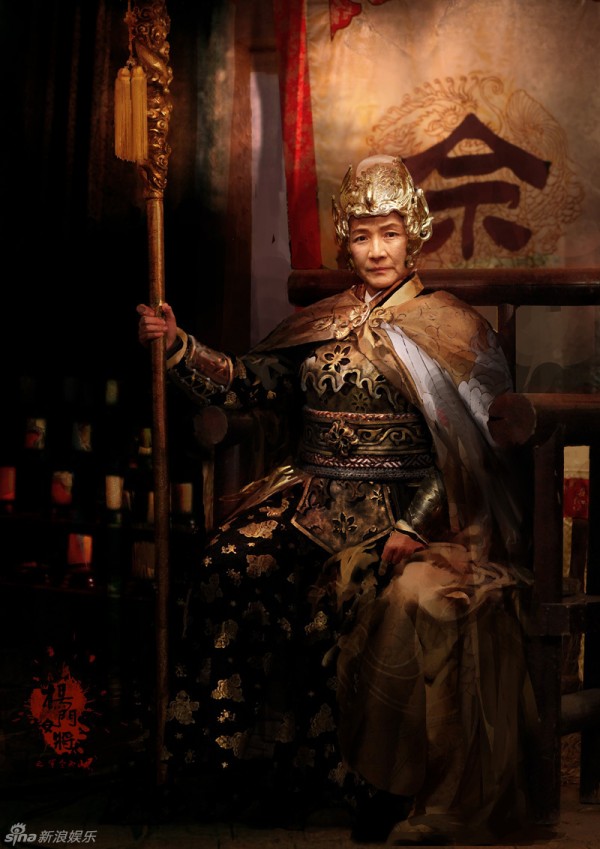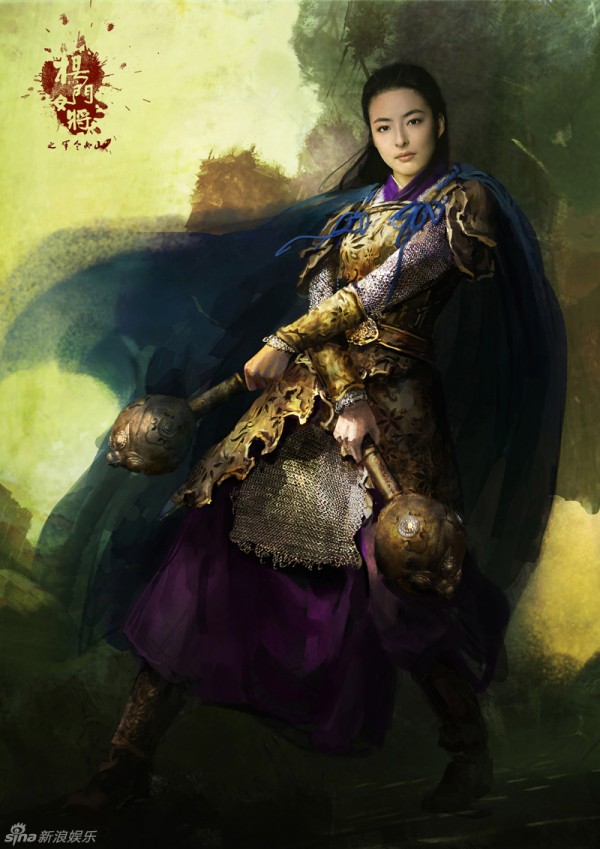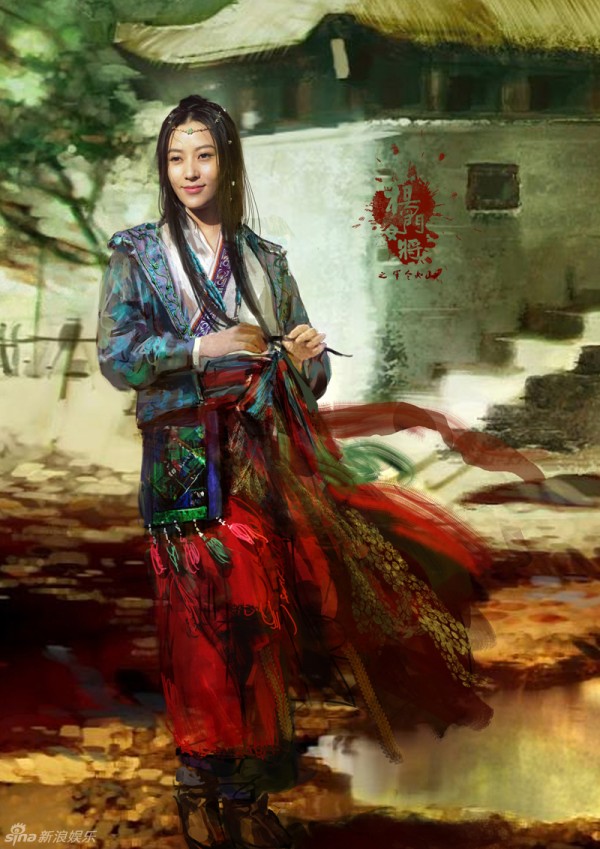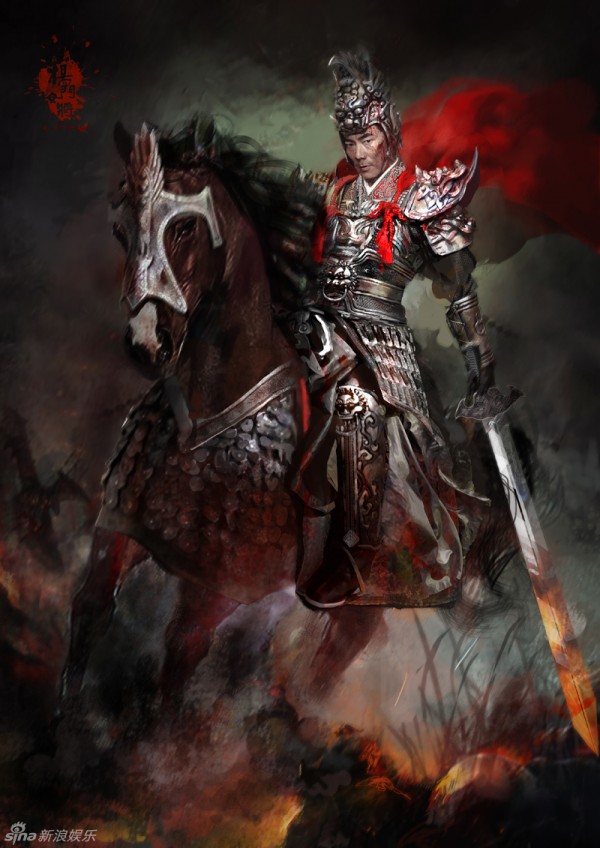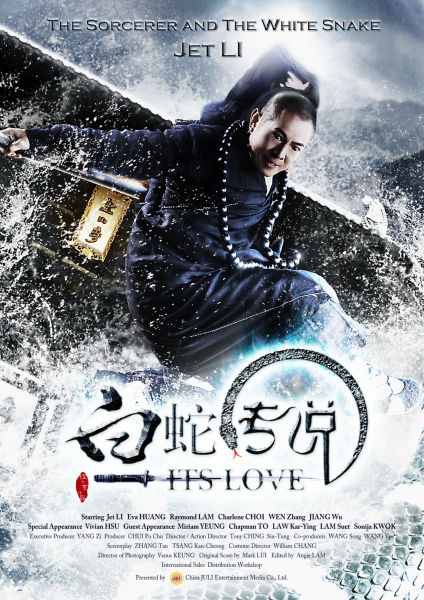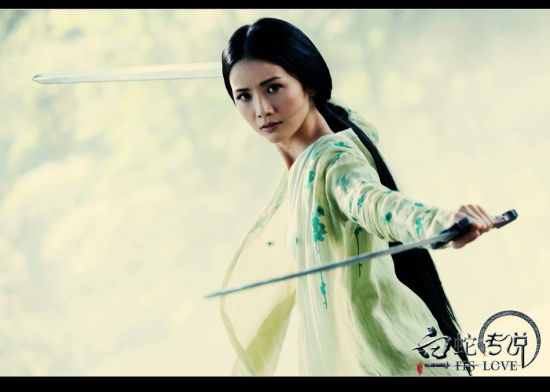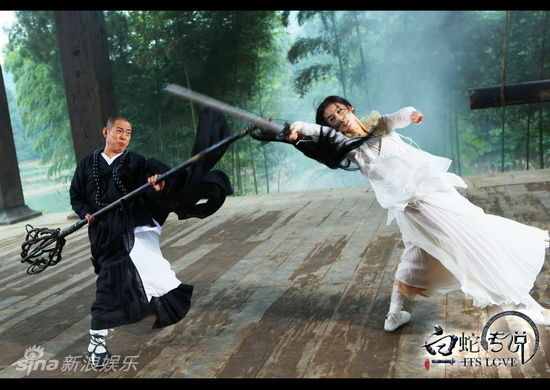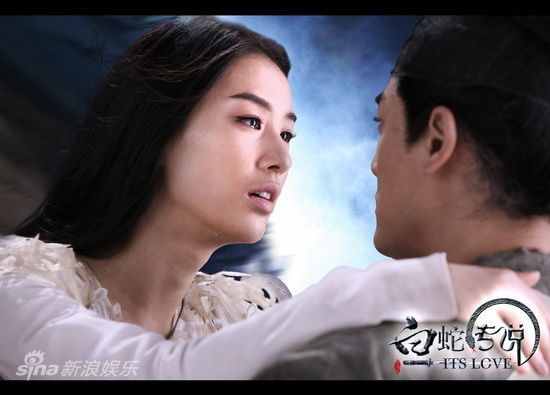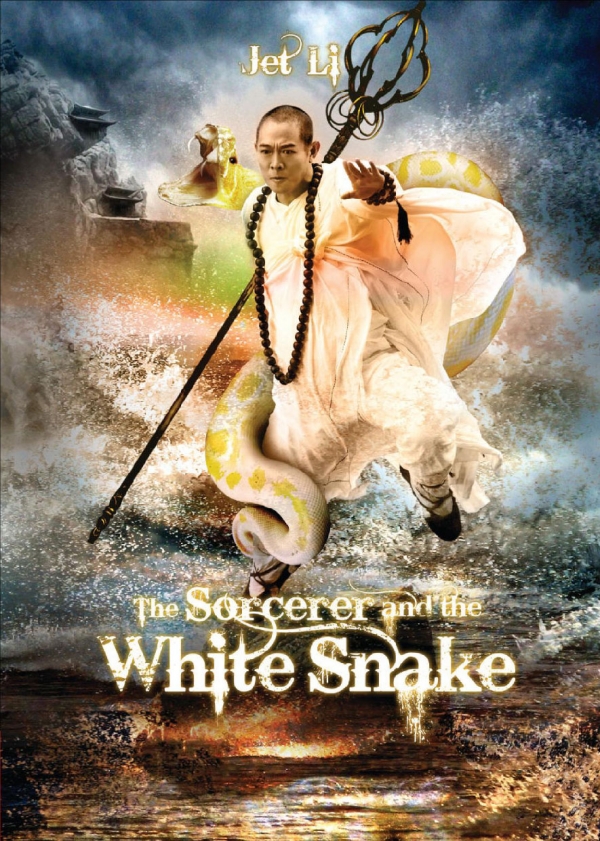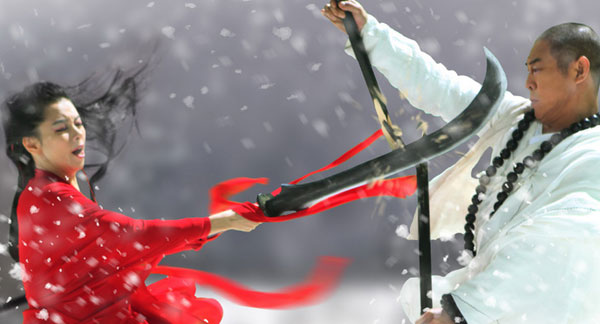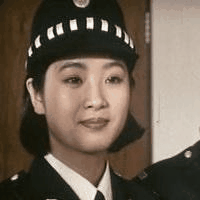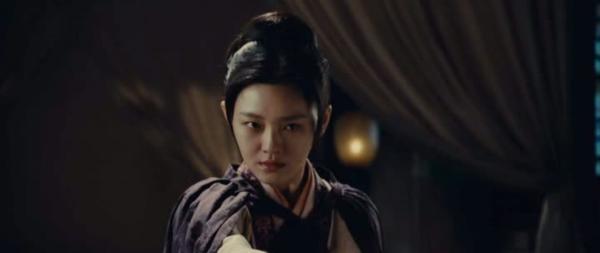Starring:
Cecilia Cheung
Cheng Pei-Pei
Yu Na
Jin Qiaoqiao
Chen Zihan
Liu Xiaoqing
Kathy Chow Hoi-Mei
Yukari Oshima (!!!)
Liu Dong
Simon Yam Tat-Wah
The Sorcerer and the White Snake
The Sorcerer and the White Snake has Jet Li as the Monk Fa Hai, and it will feature many martial arts battles. Eva Huang is White Snake, and Charlene Choi is Green Snake. The scholar Xu Xian is Raymond Lam, and the Monk’s understudy is played by Wen Zhang. Several others have been cast as various demon characters, including Jiang Wu as Turtle Devil, Vivian Hsu as Snow Goblin, Miriam Yeung as Rabbit Devil, Chapman To as Toad Monster and Lam Suet as Chicken Devil. So it will be a huge zoo of fairy monster people!
The Sorcerer and the White Snake has had a few English titles, originally Madame White Snake and then It’s Love. But It’s Love is a lame name, thus the distributor changed it to The Sorcerer and the White Snake to pull in Harry Potter fans. I’m kidding, they actually did it to get fans of the Sorcerer’s Apprentice franchise! But will it have the “mocha mocha” song? Because you need the “mocha mocha” song!
Ching Siu-tung (1987’s A Chinese Ghost Story) directs.
Trailer:
English subs trailer:
Effects work video:
via HKMDB
Flying Centipede (Review)
Flying Centipede
aka Fei tian wu gong aka 飞天蜈蚣
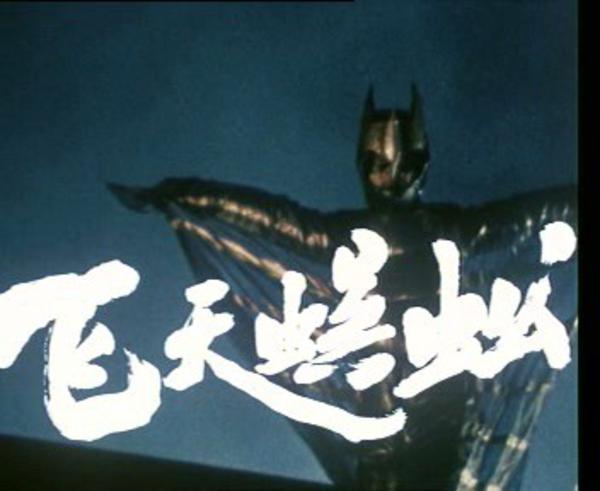
1994![]()
Directed by Qingguo Sun
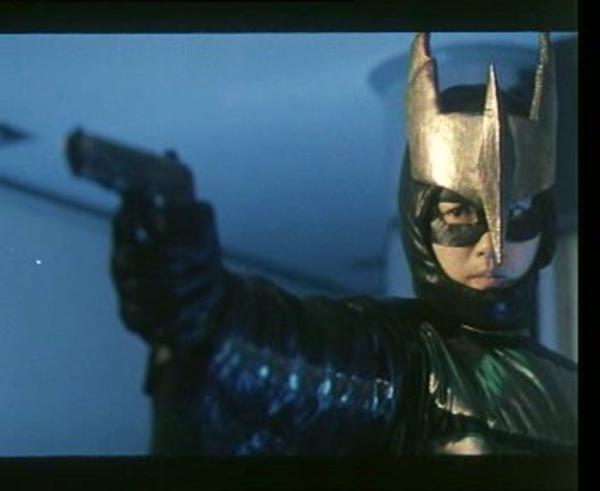
Flying Centipede is a guy who likes to dress up as a Batman copy, except he looks more like a Mothman and call himself Flying Centipede for some reason. Flying Centipede also machine guns down lots of cops, instantly making his hero status questionable. Maybe if we were told all these guys were corrupt cops, it would be better, but instead Flying Centipede is just painted as a villain despite being a super hero. And as this is a Mainland China production, we can’t have villains get away with their crimes. What kind of moral standard is that? So everyone dies. Spoiler alert!
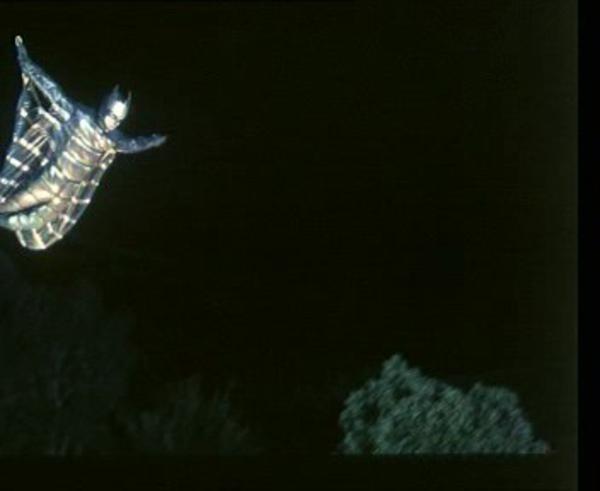
Thanks to our crack research team, we were able to find….not much about Flying Centipede. Time to fire the research team, or at least force them to learn Chinese.
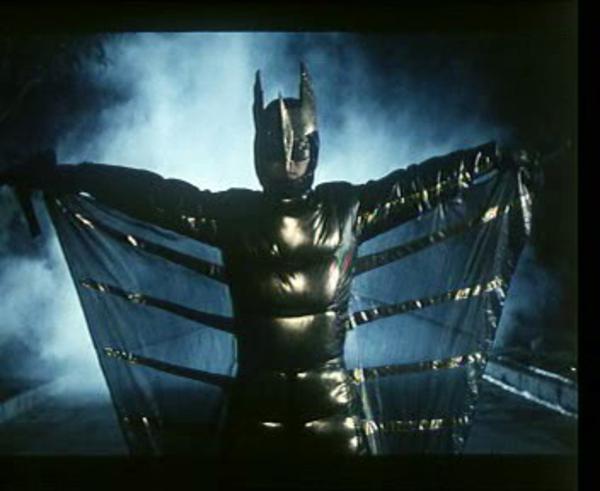

|
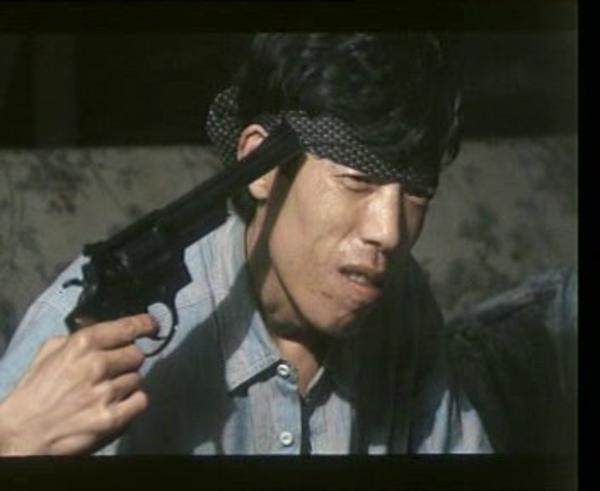
Reign of Assassins (Review)
Reign of Assassins
aka Jianyu

2010![]()
Directed by Su Chao-Pin and John Woo

Reign of Assassins left me angry, not because it is a bad film, but because it could have been an outstanding film. Reign of Assassins had the potential to be an awesome and unforgettable film experience. Instead, we have just a good film, with parts I remember more because of how they could have been and not what they are. Yes, there are some great sequences in Reign of Assassins (RoA for those of us who are cool), mostly the action sequences (which is where it looks like John Woo just completely took over), but there are many other parts that look great in screencaps and as stills.
Interesting characters are introduced, only to be barely in the film or have suspect motivations, while other characters get far far too much screen time. Why we had like 30 minutes of the land lady vs. five minutes of the Magician I will never know. The villain’s big secret reveal was a let down, as was his secret identity. Why does the undisputed master of the biggest circle of thieves need a secret identity? And it isn’t even a secret identity that he uses to get information no one else can get, he’s just… Gah!

One is tempted to compare this to John Woo’s Face/Off, what with all the face-switching, but he didn’t write the film and seemed to be just hanging around the set all day telling Su Chao-Pin what to do. I guess he just sort of took over and Su Chao-Pin was so impressed that John Woo is hanging around he just let him. John Woo’s daughter Angeles Woo even shows up near the beginning of the film! So we can say that Su Chao-Pin got Wooed. Big time.
Just imagine one day you are directing a film, and then Steven Spielberg walks in and says he loves the script and wants to hang out on set. Of course you’re stoked, you are in the presence of a master and probably learn a lot. Then the next day, Steven comes back. And that’s cool. And he has tips and helps out your crew. Then he comes back again the next day. And the next. Soon your crew starts deferring to him and he virtually takes over directing most of the major scenes. The press gets wind, and suddenly your film is now “Steven Spielberg’s…” and his daughter is suddenly cast in it. Soon, no one even remembers who you are. Your star asks you to go get coffee. Spielberg is sent on a ten city tour to promote the film, while you get yelled at for forgetting the hazelnut syrup in the latte. Bitter and dejected, you then log onto TarsTarkas.NET, only to find even he is making fun of you. Your life is ruined, and there is nothing left to do but jump off the Empire State Building. But don’t despair, I think they got suicide nets now. Try the Golden Gate Bridge, it is still net free at the moment.
Now, I’m not saying that’s what happened on this film, I’m just saying they need to get the barriers on the bridge built faster.

So let’s start the Roll Call for John Woo’s Reign of Assassins!

|

Empire on autopilot
Japan’s new government has caved in to the Pentagon’s demands over a military base in Okinawa. For background on the situation, I highly recommend reading this article by Chalmers Johnson from 2003. As for the current conflict:
You’d think that, with so many [90] Japanese bases, the United States wouldn’t make a big fuss about closing one of them. Think again. The current battle over the Marine Corps air base at Futenma on Okinawa — an island prefecture almost 1,000 miles south of Tokyo that hosts about three dozen U.S. bases and 75% of American forces in Japan — is just revving up. In fact, Washington seems ready to stake its reputation and its relationship with a new Japanese government on the fate of that base alone, which reveals much about U.S. anxieties in the age of Obama.
And the reason for this insistence:
The U.S. military presence in Okinawa is a residue of the Cold War and a U.S. commitment to containing the only military power on the horizon that could threaten American military supremacy. Back in the 1990s, the Clinton administration’s solution to a rising China was to “integrate, but hedge.” The hedge — against the possibility of China developing a serious mean streak — centered around a strengthened U.S.-Japan alliance and a credible Japanese military deterrent.
What the Clinton administration and its successors didn’t anticipate was how effectively and peacefully China would disarm this hedging strategy with careful statesmanship and a vigorous trade policy. A number of Southeast Asian countries, including the Philippines and Indonesia, succumbed early to China’s version of checkbook diplomacy. Then, in the last decade, South Korea, like the Japanese today, started to talk about establishing “more equal” relations with the United States in an effort to avoid being drawn into any future military scrape between Washington and Beijing.
Now, with its arch-conservatives gone from government, Japan is visibly warming to China’s charms. In 2007, China had already surpassed the United States as the country’s leading trade partner. On becoming prime minister, Hatoyama sensibly proposed the future establishment of an East Asian community patterned on the European Union. As he saw it, that would leverage Japan’s position between a rising China and a United States in decline. In December, while Washington and Tokyo were haggling bitterly over the Okinawa base issue, DPJ leader Ichiro Ozawa sent a signal to Washington as well as Beijing by shepherding a 143-member delegation of his party’s legislators on a four-day trip to China.
Against the background of an attempted revival of US manufacturing, this has unfolded at the same time as the scandal over Toyota cars that was dubious at the outset and has become outright embarrassing. As if that wasn’t overdoing it enough, we now have accusations over China manipulating its currency becoming louder, including an op-ed from useful idiot Paul Krugman:
To give you a sense of the problem: Widespread complaints that China was manipulating its currency — selling renminbi and buying foreign currencies, so as to keep the renminbi weak and China’s exports artificially competitive — began around 2003. At that point China was adding about $10 billion a month to its reserves, and in 2003 it ran an overall surplus on its current account — a broad measure of the trade balance — of $46 billion.
Today, China is adding more than $30 billion a month to its $2.4 trillion hoard of reserves. The International Monetary Fund expects China to have a 2010 current surplus of more than $450 billion — 10 times the 2003 figure. This is the most distortionary exchange rate policy any major nation has ever followed.
That last sentence is the absolute money quote. While the concerns are legitimate and there is a real problem, blaming China for it is silly when an entire world order was constructed around the dollar. What makes this so ridiculous is that I think these arguments aren’t being put forward in bad faith so much as they are in bad memory.
I’m picking Krugman as an example because he is so stunningly inconsistent on this subject that it adds some humor to a subject that is otherwise pretty dry. Following WWII, the Bretton Woods system was set up to prevent exactly this kind of problem, as Paul Krugman is certainly aware of considering he wrote a chapter on the subject in a textbook on international trade policy. Following the massive war spending in Indochina during the late 60’s and early 70’s, the United States could no longer afford to guarantee this system and unilaterally dismantled it, resulting in the dollar itself becoming the global reserve currency. As Krugman notes in his textbook:
On a single day, May 4, 1971 the Bundesbank [German central bank] had to buy $1 billion to hold its dollar exchange rate fixed in the face of great demand for its currency. On the morning of May 5, the Bundesbank purchased $1 billion during the first hour of foreign exchange trading alone!
How is that for “the most distortionary exchange rate policy” a “major nation” has ever followed? For a detailed explanation of the Japanese and Chinese perspective on this policy, see this interview and/or this paper.
Rather than focusing on China, perhaps it’s time to address the elephant in the room that’s to (nearly) everyone’s detriment:
According to the 2008 official Pentagon inventory of our military bases around the world, our empire consists of 865 facilities in more than 40 countries and overseas U.S. territories. We deploy over 190,000 troops in 46 countries and territories. In just one such country, Japan, at the end of March 2008, we still had 99,295 people connected to U.S. military forces living and working there — 49,364 members of our armed services, 45,753 dependent family members, and 4,178 civilian employees. Some 13,975 of these were crowded into the small island of Okinawa, the largest concentration of foreign troops anywhere in Japan.
These massive concentrations of American military power outside the United States are not needed for our defense. They are, if anything, a prime contributor to our numerous conflicts with other countries. They are also unimaginably expensive. According to Anita Dancs, an analyst for the website Foreign Policy in Focus, the United States spends approximately $250 billion each year maintaining its global military presence. The sole purpose of this is to give us hegemony — that is, control or dominance — over as many nations on the planet as possible.
The Promise (Review)
The Promise
aka Wu ji

2005![]()
Starring
Jang Dong-Kun as Kunlun
Hiroyuki Sanada as General Guangming
Cecilia Cheung as Princess Qingcheng
Nicholas Tse as Duke Wuhuan
Liu Ye as Snow Wolf (Ghost Wolf)
Chen Hong as Goddess Manshen
Qian Cheng as The Emperor
Directed by Chen Kaige

Chen Kaige brings you the most expensive film in Chinese history, with a budget of 282,572,490 Yuan ($35 Million.) Does this increase in budget bring us a film far superior to many to exit China? The answer is sadly no. What should be an outstanding film with beautiful images instead becomes an example in mediocrity, a living example that more money does not make a better film, something that Hollywood should be learning for the past 10 years, but somehow isn’t picking up. The Promise reminds me of the lyrics of Linkin Park’s In The End: “I tried so hard and got so far, but in the end it doesn’t even matter.” Now before I scare all of you off with more Linkin Park lyrics, let me explain myself. This movie tries to be a great Chinese epic, and tries to be a beautiful film, and tries to be an international success. But in the end, all of that is for naught, because the film isn’t well written. The main weakness is with the story, and following that, the special effects the story tried to portray. I’m used to bad CGI in films, but in something that’s supposed to be a beautiful epic the results are jarring, looking cartoonish and pulling you out of the fantasy element into the world of Bugs Bunny.




